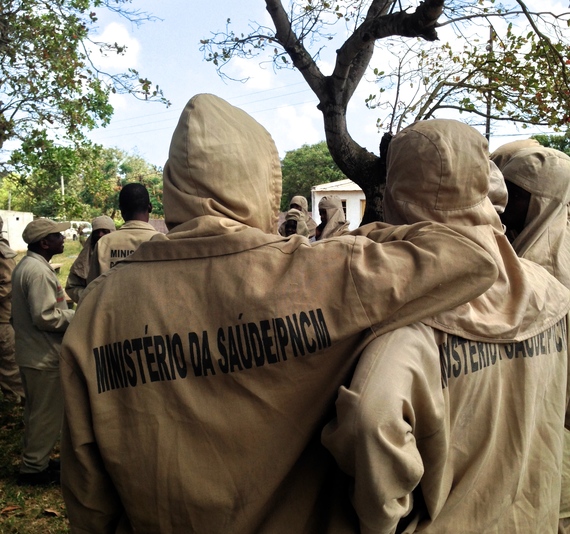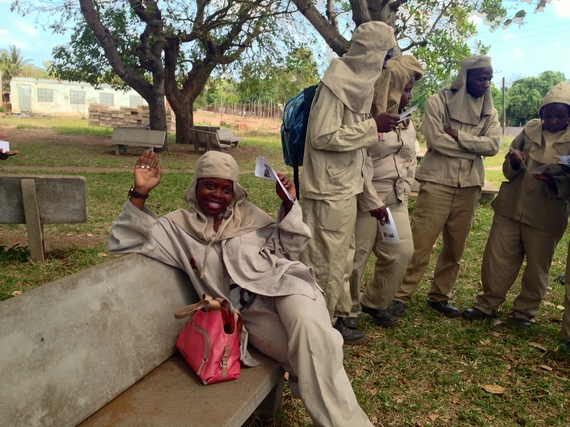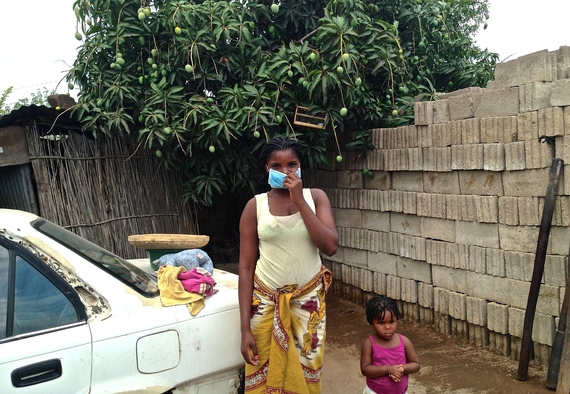Combating malaria is a tricky tradeoff in Mozambique.
The mosquito-born illness is the leading killer of children, and the CDC-supported ministry of health is aiming to change that with a door-to-door campaign to spray the insides of homes with repellant. But DDT is toxic, and some scientists say the insecticide should be used only as a last-ditch effort. It depends a bit on whom you ask.
My colleagues and I arranged to see a spraying campaign in Xai Xai, but it turned out the cadre of young men and women were only making informational rounds that day. They still wore their full gear, perhaps to convey professionalism when meeting homeowners, perhaps to impress the visiting group of international journalists.
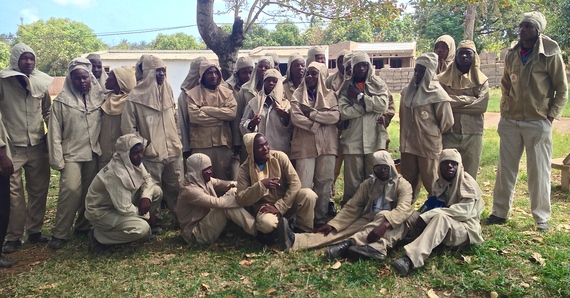
The group poses before dispersing to different households to tell residents about indoor residual spraying.
It's tough work that takes place over 45 days. The workers each put in six days a week making informational rounds and spraying homes. Those interviewed said it was important to contact residents ahead of time because they experience little resistance when someone shows up in person to explain the benefits.
Mosquitoes hang out on walls in homes, waiting until humans go to sleep before they suck blood to feed their eggs. Applying DDT to the walls keeps them out. Residents must remove furniture and belongings from their houses before spraying and stay outside for three hours after.
The government uses indoor residual spraying largely because other mosquito-control methods, such as outdoor spraying campaigns, are prohibitively expensive. The WHO's position statement finds DDT to be a cheap and effective means of keeping malaria at bay:
"DDT is still needed and used for disease vector control simply because there is no alternative of both equivalent efficacy and operational feasibility, especially for high-transmission areas."
In Maputo province, we followed a group using the insecticide Deltamethrin instead.
Italia Jaime heard about the spraying campaign in her neighborhood of Boane through a television report. We found her waiting outside while her home was sprayed.
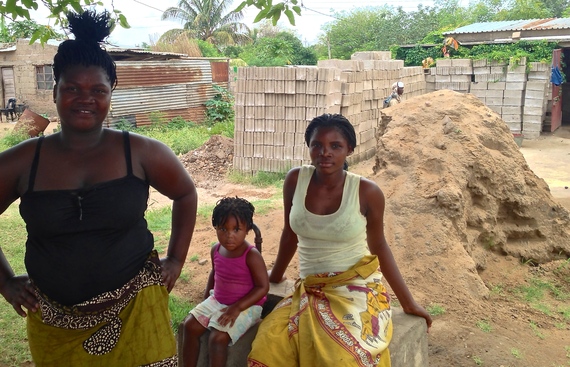
Italia (L) waits in front of her house, which she shares with Gracinda (R) and Gracinda's daughter Esme (C).
Italia says the number of mosquitoes in her house varies depending on the time of year. She also uses mosquito nets at home; she bought some herself and received others from the hospital.
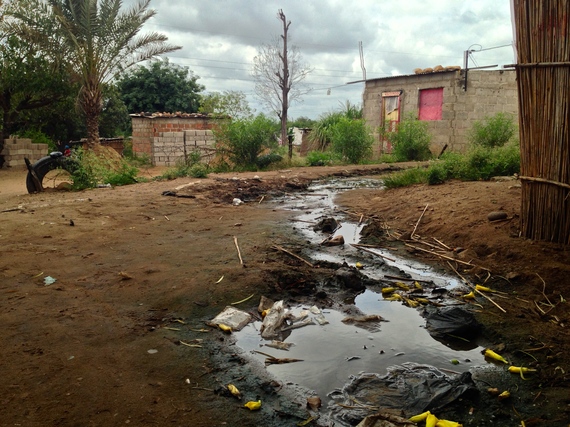
Mosquitoes lay their eggs in stagnant water, and there was plenty of it in this neighborhood of Boane.
I entered Italia's house shortly after workers finished spraying to find her furniture stacked in the center of the rooms - not exactly following protocol to remove all possessions ahead of time. A cockroach scurried out the door to escape the chemicals. Health officials say some residents falsely believe the spraying attracts insects, and one of the challenges they face is to convince people otherwise.
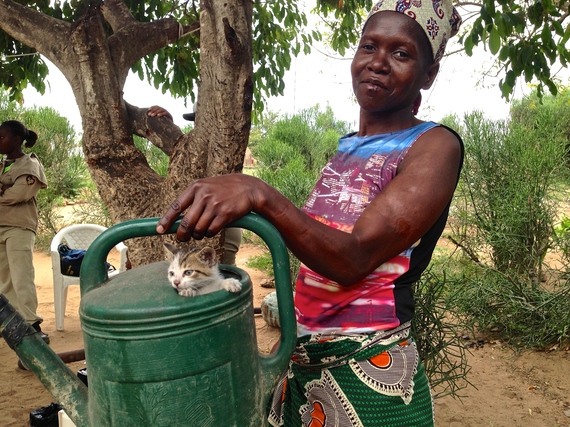
It's important to remove food and animals from homes while walls are being treated. This woman kept her neighbor's cat in a watering can.
We met a man named Winston who lives alone with his children in the same neighborhood. He refused to spray his home out of skepticism and fear for their safety.
"It's not mandatory," he explained. He worries pieces of the wall will peel off. "I have small children who eat off the ground."
Malaria is treatable, yet poor access to healthcare makes prevention particularly important in Mozambique.
Care to pump your house full of pesticide? For now it may be the lesser of two evils.
Clare Richardson is in Mozambique on a trip organized by the International Reporting Project (IRP).

